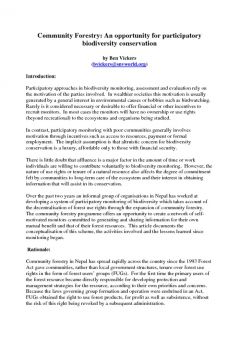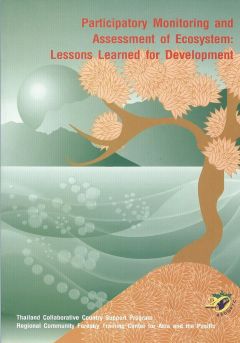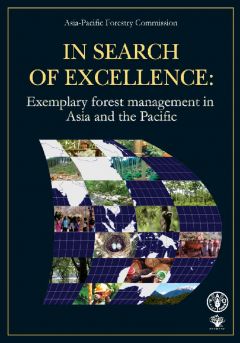Location
RECOFTC
RECOFTC is derived from an abbreviated form of the organization's legal name, Regional Community Forestry Training Center for Asia and the Pacific. Formerly the organization was known as RECOFTC – The Center for People and Forests.
RECOFTC – The Center for People and Forests is an international not-for-profit organization that focuses on capacity building for community forestry in the Asia Pacific region. It advocates for the increased involvement of local communities living in and around forests - some 450 million people in Asia-Pacific - in the equitable and ecologically sustainable management of forest landscapes.
The Regional Community Forestry Training Center for Asia and the Pacific (RECOFTC) opened in Bangkok, Thailand, in March 1987 with support from the United Nations Food and Agriculture Organization, the Government of Switzerland (through the Asian Development Bank), and Thailand's Kasetsart University.
Community forestry is widely acknowledged as a powerful solution for many of the challenges facing local people and the wider society, especially in improving rural livelihoods, enhancing community governance and empowerment, transforming forest-related conflict, protecting and enhancing the environment, and helping to fight climate change. As a capacity-building organisation, RECOFTC improves the ability of people and organisations to conduct community forestry effectively and sustainably.
RECOFTC works toward its mission through four thematic areas:
- expanding community forestry
- people, forests and climate change
- transforming forest conflict
- securing local livelihoods.
Members:
Resources
Displaying 476 - 480 of 485Community Forestry: An Opportunity for Participatory Biodiversity Conservation
"Although locals were unfamiliar with even the local term for ‘biodiversity' they readily understood the concept and its importance after a brief explanation. Furthermore, it became clear that, as a result of the security of use rights in their community forests, locals did indeed value species for their contribution to the overall health of the ecosystem regardless of any other benefits they may bring."
Participatory Monitoring and Assessment of Ecosystems: Lessons Learned for Development
In the kingdom of Thailand, forest ecosystems play a pivotal role in the livelihoods of both rural and urban communities. Rural communities depend upon the forest as a source of food, shelter and income, whereas urban communities rely on forests to sustain the hydrological cycle and as a venue for recreational activities.
Advances in Community Forestry in Asia
Community forestry has no doubt come a long way towards becoming part of mainstream forestry in some countries. However, its potential to make a difference in the management of the forestry sector and rural development is yet to be widely recognized.
In search of excellence: Exemplary forest management in Asia and the Pacific
In search of excellence deviates from the path that most authors have taken. Instead of dwelling on the failures and the negative, it celebrates the “good” and the many positive management efforts in the Asia–Pacific region. It highlights the many people who are striving for excellence in forest management and seeks to encourage others to emulate these positive efforts. Collectively, the story of forestry that emerges may be more about endeavour and ingenuity than greed, indifference and incompetence.
In search of excellence: Exemplary forest management in Asia and the Pacific
In search of excellence deviates from the path that most authors have taken. Instead of dwelling on the failures and the negative, it celebrates the “good” and the many positive management efforts in the Asia–Pacific region. It highlights the many people who are striving for excellence in forest management and seeks to encourage others to emulate these positive efforts. Collectively, the story of forestry that emerges may be more about endeavour and ingenuity than greed, indifference and incompetence.





